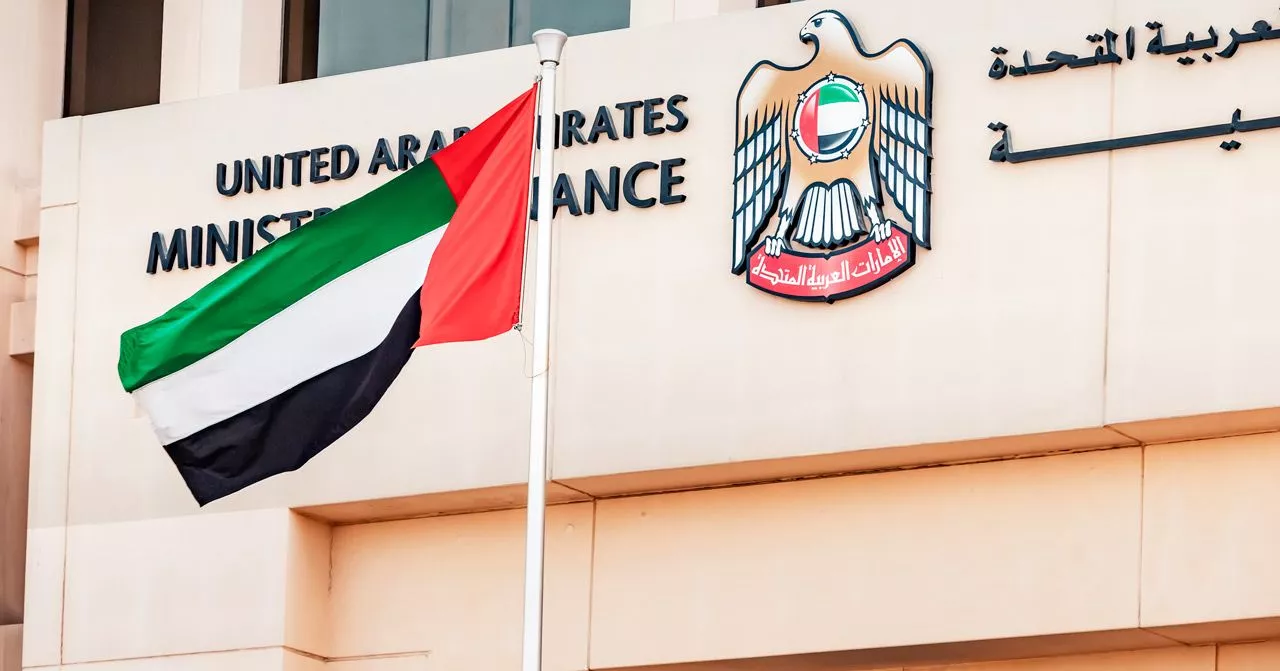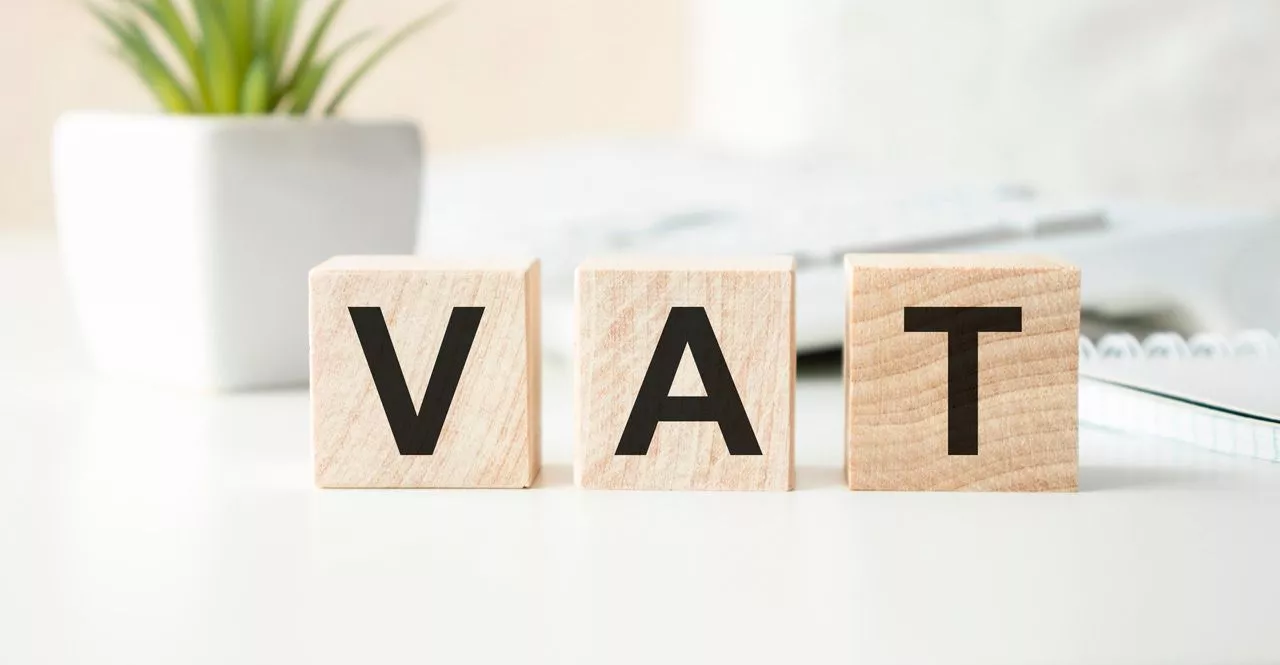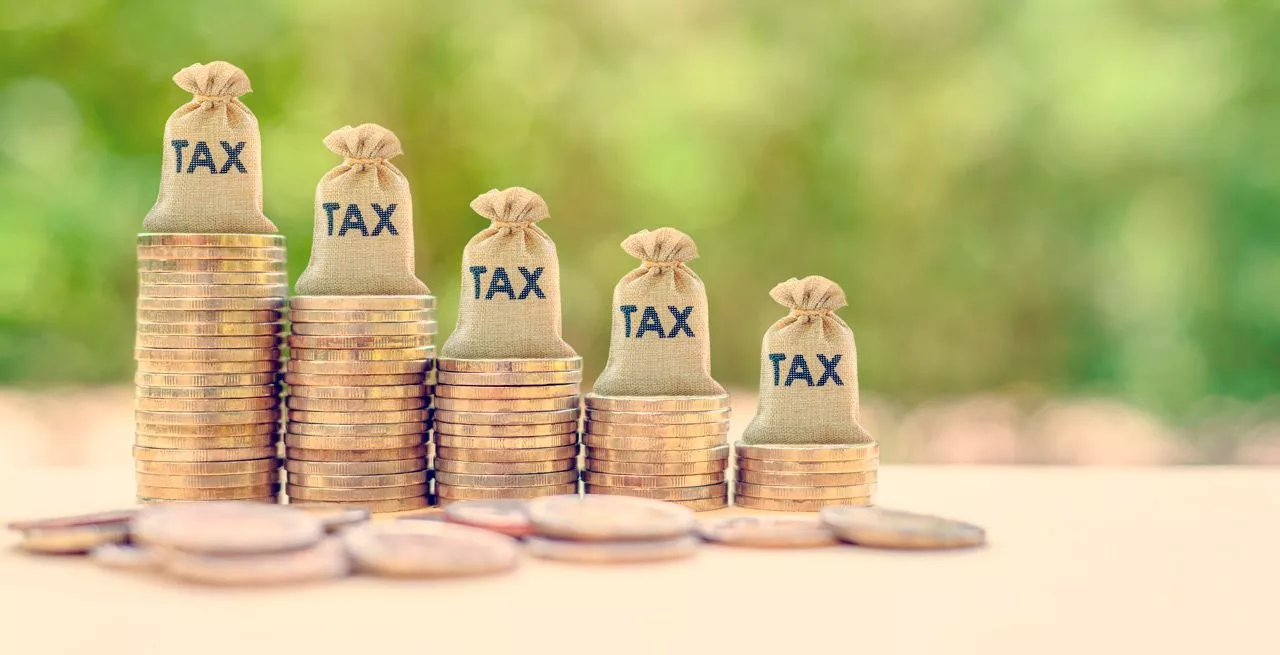Tax System in UAE

The UAE has long been a sought-after destination among expats from all over the world to live, work and establish a business. One of the primary reasons for the demand is that the country is largely tax-free. Employees do not have tax deducted from their income, and there is also no inheritance taxes or stamp duty. According to Sheikh Mohammed bin Rashid Al Maktoum, the Vice President and Prime Minister of the UAE, the country would never adopt income tax as a way to relieve debt. However, there are some instances when taxes are indeed applied. In this article, we will review the aspects of life in the UAE which are actually tax-free, the structure of the tax system, and how to take advantage of it as a business owner or an individual.
The Tax System in the United Arab Emirates
Surprisingly, the UAE does not have a system of federal taxation at the moment. In practice, although there are emirate-based income tax decrees which may apply to all businesses, these decrees are currently only enforced in respect of income generated from business activities related to production of oil and gas. Furthermore, the UAE does not have a thin capitalization rule or general anti-avoidance rule and UAE residents are not subject to taxes on international pension plans. It is also worth mentioning the Federal Tax Authority (FTA) established by virtue of Federal Law Decree No. 13 of 2016 was issued by the President of the UAE, His Highness Sheikh Khalifa bin Zayed Al Nahyan. The FTA imposes excise tax and VAT of 5%. The latter tax was not introduced until 2018 and is currently applicable at every stage of the supply chain.

Federal Taxes
Whether you are an Emirati national or an expat resident, the seven emirates do not levy any capital or personal tax. Expat workers are treated equally to Emirati employees, therefore they are not subject to any special expat schemes. Self-employed individuals and freelancers are also subject to this regulation.
Individual Tax
Social security contributions are only applied to the nationals of Gulf Cooperation Countries. These include the UAE, Bahrain, Kuwait, Qatar, Oman and Saudi Arabia. For UAE national employees, the employer and employee pension contribution rates are 12.5% and 5% respectively. It is worth noting that contributions are based on the monthly contractual salary, including basic allowances, as agreed in the local employment contract. According to UAE labour law, non-GCC national employees are eligible for an end-of-service benefit (EOSB) if their employment contract is terminated after the completion of a minimum of 1 year of service. This is payable by the employer and is calculated as 21 days per year of the basic salary for the first 5 years of employment. For each additional year of service, the EOSB will be 30 days per year of the employee’s basic wages. One has to keep in mind that the maximum EOSB payment should not be more than 2 years’ remuneration.
Corporate Tax
Corporate tax is enforced on income generated from business activities such as:
<ol><li>Oil and gas exploration companies are taxed at progressive rates of up to 55% under the applicable Emirate-level income decree, although in practice different rates may be agreed with the relevant authority under specific government concession agreements.</li><li>Branches of foreign banks are taxed at rates according to the banking tax decree of the Emirate in which they operate, as a rule this is a flat rate of 20%.</li></ol>
Businesses subject to income tax on gas and oil operations can carry forward losses indefinitely. Meanwhile, branches of foreign banks are allowed to carry forward losses for 2 years only. The losses may not be recovered from the income of the previous years.
Double Taxation
The UAE has a double taxation agreement with 135 countries, as of 2021. The full list can be found on the official webpage of the Ministry of Finance. Investment firms, private and public companies and air transport firms, among many others can benefit from Avoidance of Double Taxation Agreements. Its purpose is to bolster the exchange of goods/services, eliminate additional taxes and diversify the national income of the UAE among other goals. There is no legal concept of corporate tax residence in the Emirates whatsoever. Nevertheless, the Ministry of Finance issues tax residence certificates to companies that are incorporated in and managed from the UAE. They should also meet the requirements of the MOF and any relevant tax treaty (such as double taxation avoidance). You can apply for a corporate tax residence online at tax.gov.ae. The following documents are required:

<ul><li>Trade License copy</li><li>Authorized signatory’s copy</li><li>Authorized signatory’s Emirates ID copy</li><li>Audited financial statement</li><li>Official bank statement</li><li>Certified tenancy contract</li><li>Memorandum of Association or any relevant document</li></ul>
Note: The legal representative must have been established in the UAE for a period of at least 1 year. Meanwhile, offshore companies are not allowed to apply for the certificate as they are not listed in the Double Taxation Avoidance Agreement. To benefit from the tax residence in the case of a physical individual, one is obliged to provide the following documents:
<ul><li>Emirates ID copy</li><li>Annual lease agreement officially documented by the competent authorities</li><li>Passport copy</li><li>Residency copy</li><li>Source of income</li><li>Official bank statement</li><li>Immigration report on residency</li></ul>
Note: The applicant must have been a resident in the UAE for at least 180 days.
Tourist Facility Tax
Resorts, hotels, hotel apartments, restaurants and other hospitality establishments may be charged with one or more of the taxes below:
<ul><li>10% municipality fees</li><li>6% tourism fee</li><li>6-10% city tax</li><li>10% fee on the room rate</li><li>10% service charge</li></ul>
The regulations of tourist facility taxes vary in each emirate. For instance, in Ras Al Khaimah, hotels charge AED 15 (USD 4.08) tourism fee per room per night. As for Dubai, hotels charge a Tourism Dirham Fee per room, per night of occupancy (for a maximum of 10 consecutive nights) ranging from AED 7-20 (USD 1.91-5.45). The fee amount depends on the grade of the hotel. Abu Dhabi charges an additional fee of 4% of the hotel stay bill and a AED 15 (USD 4.08) charge per night per room.
Inheritance Tax
There is no gift tax or inheritance tax in the UAE and there are no automatic taxes imposed on the death of an individual. However, the recipient of a donation of immovable property situated in the UAE is required to pay the above-mentioned transfer fee.

State/Regional Taxes
There are over 40 free-trade zones in the Emirates that have specific customs, tax and import regimes within themselves. In fact, they offer tax incentives of 15 to 50-year tax holidays without restrictions on capital and profit repatriation. The free zones also provide 100% exemption from import duties on goods brought into the concerned free zones and exports as well. At the same time, transfer tax is applicable on the transfer of shares of a company located in the Jebel Ali Free zone that holds property in Dubai, even though it would benefit from all other previously mentioned advantages.
Taxes on Goods and Services (VAT)
The UAE has 2 categories of taxes on services and goods – VAT and excise duty.
VAT
VAT applies to the supply of goods and services, as well as the importation of goods. The concept of a taxable person is linked to a status of conducting economic activity in the UAE for the purpose of earning an income. The VAT rate in the UAE is fixed at 5%. Specific categories of goods and services are exempt from VAT such as:
<ul><li>Basic health care</li><li>International transportation of goods and passengers</li><li>Investment precious metals</li><li>Means of transports</li><li>Supply of educational services and related goods</li><li>Buildings utilized for charitable services</li></ul>
Moreover, exemption is applicable to the supply of financial services, bare land, local transportation and residential real estate. VAT returns are being filed on a monthly or quarterly basis depending on the turnover of the taxable individual. At the same time, upon approval of the FTA, micro and small businesses are able to file on a semi-annual basis. Tax returns have to be filed electronically via the FTA portal within 28 days following the end of the tax period. Tax liability shall also be settled within the previously mentioned period of 28 days.

Excise Duty
Goods that are deemed harmful to the environment and human health are termed as excise goods and are subject to tax. In the UAE, excise duty is imposed on energy, alcohol and carbonated drinks as well as tobacco products and tobacco itself. The rates are as follows:
<ul><li>Alcoholic drinks – 50%</li><li>Energy drinks – 100%</li><li>Soft drinks – 50%</li><li>Beverages and sugary drinks – 50%</li><li>Tobacco and tobacco products – 100%</li><li>Electronic smoking devices and liquids in the related smoking devices – 100%.</li></ul>
Businesses that take part in the import or production of excise goods in the Emirates have to apply and register for excise tax. This fee becomes payable on the import of excise goods after filing an import declaration or upon the release of products into the UAE for customs suspension. Excise tax is calculated on the basis of the higher retail sales price determined by the importer/producer/standard price agreed on these goods (excl. other taxes).
Refunds of VAT in the UAE
A VAT refund scheme for tourists has been available since November 2018 which allows eligible tourists to request refunds of VAT incurred on their local purchases from over 4,000 stores in the UAE. The tax can be recovered at all land/sea ports and airports in the UAE. A tourist will need to fulfill the following requirements:
<ol><li>Goods are not excluded from the Refund Scheme of the FAT.</li><li>A tourist must have the intention of leaving the country within 90 days from the date of supply and the purchase of the supplied goods.</li><li>Products must be bought from a retailer-participant in the Tax Refund for Tourists scheme.</li><li>The process of export and purchases must be carried out according to the procedures and requirements determined by the FAT.</li></ol>
Upon leaving the UAE, tourists will be able to reclaim taxes paid on their purchase in a fully electronic system without any human involvement. The tourist shall present their passport, credit card and tax invoices and will obtain a refund via credit card or in cash from the global operator; Planet Payment. One will receive 85% of the total VAT amount paid, minus a fee of AED 4.8 (USD 1.31) per Tax Free tag.

UAE Tax System for Foreigners
Although the UAE does not impose taxes on personal income, it does not mean that you can benefit from a tax-free income. If you earn your income in the UAE but you are a tax resident elsewhere, your earnings are subject to taxes. It is strongly recommended to check the legislative system of your country regarding this issue to avoid any significant problems. The majority of countries qualify their citizens for tax purposes based on a tax year. Taking this fact into account, the question of when you leave your home country for the UAE is rather essential. For instance, if you are a UK citizen and UK-domiciled, it is possible that even a one year long contract will not be sufficient to exempt you from your income tax obligations in the UK. This is due to the fact that the contract might cover just half of the current tax year and half of the next tax year. So, if your stay in the UAE covers the qualifying part of a tax year in your home country, you will be able to benefit from a completely tax-free income in the UAE.
Impact of FATCA on US Citizens
US citizens face a challenge regarding taxes as the United States is the only developed country in the world that heavily taxes its citizens abroad. FATCA, signed between the US and UAE in 2015, obligates American citizens to report their foreign income and there is no way to hide the generated funds. If you fail to report your earnings, your financial service provider has to inform the IRS of the non-fulfillment as per the agreement between the UAE and the US. Therefore, if you refuse to report your income to the US authorities, the IRS can issue instructions to revoke the individual’s US passport.

Common Reporting Standard
The UAE is one of the 50 countries that has agreed to automatically share data on legal entities and individuals with other countries. The CRS in the UAE was implemented back in 2017 to avoid offshore tax evasion by exchanging financial information of bank account holders. It means that financial institutions in the UAE are legally obliged to collect all relevant information of their account holders regarding their tax residency status, especially a tax residence abroad (or any other participating status). Data required by the tax authorities for personal and entity account holders are the following:
<ul><li>Taxpayer identification number (TIN)</li><li>Name and residential address (in case of a personal account)</li><li>Date and place of birth</li><li>Income on the account</li><li>Account number and account balance at a specific date</li><li>Gross proceeds from any sale or redemption of the asset</li></ul>
Tax on Property and Wealth
When speaking about the taxation on profits from real estate in the UAE, there is no tax on the sale or rental income payable by an investor. The annual fixed tax on property which is applicable in other countries is not available in the UAE.
Property Transfer Tax
Taxes on transfer of property are commonly payable on leasing, mortgage and sale/purchase. Transfer charges are to be levied for specific direct and indirect transfers of real property located in the UAE, including the transfer of shares in a real estate company holding the real estate in the UAE. The rate of the tax depends on the emirate where the property is located. For instance, in Dubai, the tax rate is fixed at 4% (can be divided equally between the buyer and the seller). Nevertheless, in reality, the transfer fee is usually borne by the purchaser. In Abu Dhabi, the property transfer tax is fixed at 2%.
Capital Gains Tax
Currently, the UAE does not impose withholding tax or any specific capital gains tax. Where applicable, capital gains is taxable under the same rules as ordinary income.
Municipality/Rental Tax
Municipality fees are imposed on property rentals. Some emirates charge a municipality fee on the annual rental value of the property, which varies according to the Emirate where the property is located. As a rule, the rates range between 2.5% to 10% depending on the property type and whether the fees will be paid by the tenant or the property owner. In Dubai, residential tenants pay 5%, and commercial tenants are subject to 10% tax. As for Abu Dhabi, UAE nationals are not taxed at all, while expats have to pay 3%. In Sharjah, the municipality tax amounts to 4% of the annual rental value of the property.

Company Taxes and VAT Rates
As previously mentioned, most businesses in the UAE are not obliged to pay corporation tax. It is only applied to branches of foreign banks and oil/gas companies.
Excise Tax for Businesses
However businesses are subject to the excise tax in the UAE if they participate in the following activities:
<ul><li>Production of excise goods where they are released for consumption in the UAE.</li><li>Import of excise goods into the UAE.</li><li>Release of excise goods from a designated zone.</li><li>Stockpiling of excise goods in the UAE in certain cases.</li></ul>
There is no registration threshold for excise tax, therefore any individual involved in the above-mentioned activities is required to register and account for the tax on the official website of the Federal Tax Authority.
VAT for Businesses
Registration for VAT (5%) is a must for taxable individuals residing in the UAE whose annual taxable supplies equal or exceed AED 375,000 (USD 102,100). A local business may voluntarily register its taxable supplies amounting to over AED 187,500 (USD 51,000) in the preceding 12 months (or are expected to exceed this sum within the next 30 days). No threshold applies to non-residents as they are required to register for VAT to remit any tax payable by them on supplies in the UAE. It is worth mentioning that in March 2021, the FTA announced that businesses working with social media influencers have to settle if the influencer’s income from freebies exceeds AED 375,000 (USD 102,100) per annum. So, once an influencer is registered for VAT with the FTA and issues an invoice of the gift/experience, the company-provider will be charged a 5% VAT which will pay the fee to the influencer, which subsequently will pay the tax to the FTA.

Import and Export Taxes
The general rate for import and export taxes in the UAE is 5%. The customs value is calculated regarding the classification, value and origin of the goods as well as the trade agreements between the UAE and the exporting country. Thus, the customs duty rate is multiplied with the value of goods plus freight insurance. It is worth mentioning that goods imported into the UAE mainland are subject to customs, while the Free Zones are exempt from customs duty. Certain categories of goods are not subject to taxes in the UAE. These include pharmaceuticals and agricultural products. For more detailed information, please visit the official website of the Unified Customs Tariff.
Tax Advice
Due to the fact that there is no personal income tax in the United Arab Emirates, the majority of people residing in the UAE do not have to hire an accountant. There simply isn’t a need for them. However, larger businesses will benefit from the help of a consulting firm which provides expert advice in the field of taxes. An experienced tax consultant fully understands tax laws and is able to advise on strategies that minimize obligations. Moreover, a specialist will help you to avoid any conflicts with the IRS or FAT when conducting an audit.
Summary
<ol><li>While there is no inheritance tax in the UAE, the recipient of property donation has to pay a transfer tax.</li><li>Expats in the UAE are not subject to social security contributions as opposed to GCC nationals.</li><li>There is a 85% VAT refund on local purchases in the UAE which is available for tourists.</li><li>US citizens should still file a tax report for the CRS following the legislative system of their country.</li><li>Many tax services in the UAE are provided electronically such as a tax residence certificate, calculation of import/export tariffs and VAT refunds.</li></ol>


